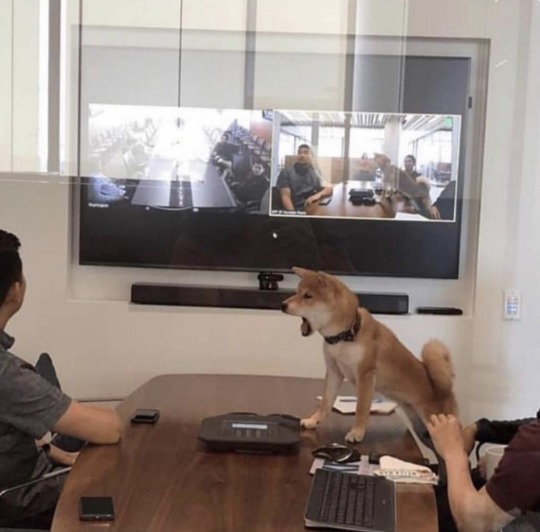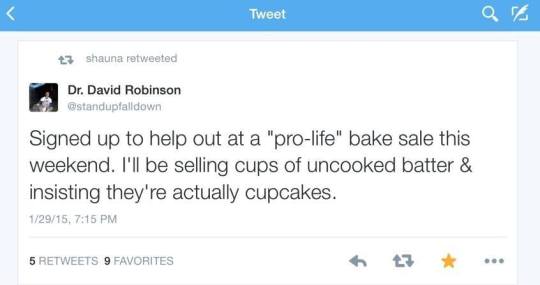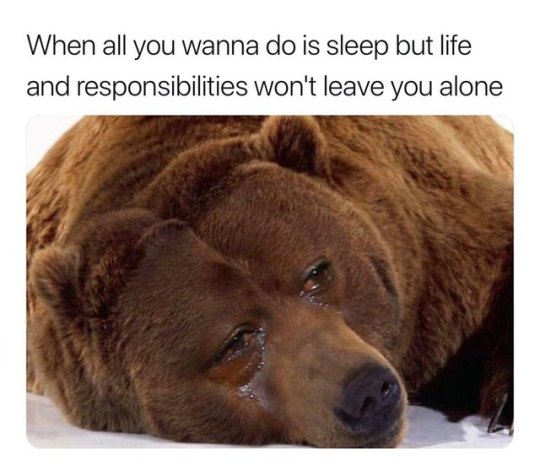Text
re-blog if you're accepting anonymous asks from anyone about anything
Instagram; hunterraiehorror
840K notes
·
View notes
Text
Damn, that's deep
The first caveman to discover a pepper probably thought that they would legitimately fucking die for a hot minute or two after eating it
662 notes
·
View notes
Text
when someone says
you eat too much
you spend too much
you sleep too much
you cry too much
youre on your phone too much

30K notes
·
View notes
Photo
yo ass is grass. sorry.

I SCREAMING THIS IS GREAT
275K notes
·
View notes
Text
*Playing U + Dat by E-40 (featuring T-Pain + Kandi Girl) on Spotify*
*waiting for her ex to text back*
*not feeling sleepy in the least, reads Night Shift by Stephen King, after pausing said song....after a few more repeats*
5 notes
·
View notes
Photo


New Year’s Giveaway!
To celebrate hitting 2,500 followers at While Reading and Walking, and to celebrate the new year, I’m hosting a giveaway! I’ll be giving away any one of my 26 favorite reads of 2017*—your choice!
To enter, simply reblog this post and be following me. You can enter by reblogging up to three times—please don’t spam your followers, and no giveaway blogs please. The contest will close on January 20 at 11:59 p.m. CST, after which I’ll randomize to find a winner. You’ll have 24 hours from when I contact you to get back to me with your full name, choice of book, and address, after which if I have not heard from you, or if you don’t get back to me with sufficient information, I will choose a new winner. This is an international giveaway, as long as Book Depository ships to you.
Check out my 2017 Wrap-Ups tag to find my 26 Favorites of the Year listed out, and to find small blurbs describing why I loved each of these books so much. I recommend all 26 of these books! Good luck to all entering, and happy new year!
*Note: If a book is the finale in the series, you can choose the first book in the series instead. (Example: Instead of A Conjuring of Light, you could get A Darker Shade of Magic.) If the hardback of one of these books has since come back in paperback, I reserve the right to send the paperback.
396 notes
·
View notes
Photo
kitty <3

He’s gotten to the good part. Don’t interrupt. x
6K notes
·
View notes
Photo
cute

Monique knows exactly how to get my attention
333 notes
·
View notes
Text
Yas!
Adverbs aren’t evil; said isn’t dead Please stop hitting the wall with your head Active is grand but not always the best Sometimes it’s passive that passes the test Some write with style, others write plain Let’s all agree that writing’s a pain The ‘rules’ can be broken, twisted, or bent All that matters is that you are content Make your own story and write your own way This has been a writer’s PSA
103K notes
·
View notes
Text
*brings what i’m currently reading to bathroom with me* *brings what i’m currently reading to dinner* *brings what i’m currently reading to the birth of my child* *brings what i’m currently reading to my own funeral*
15K notes
·
View notes
Text
PSA FOR ALL THE BROKE COLLEGE KIDS
Lately all I’ve been seeing on my dashboard are posts about these sites that pay people to fill out surveys. I actually signed up for a few of them but all of them are only offering like 5 cents per survey ((lol no thx)).
BUT, recently I discovered this website that’s actually offering some pretty decent payments. This website is offering $3-5 per survey and the surveys barely take any time to complete!! I’ve been doing them in between studying and lemme tell u, the money adds up quick!!
If you’re interested, find your country below and start earning! Feel free to message me with any of your questions <3
Canada: click here
USA & International: click here
5K notes
·
View notes
Text
Dystopian Governments Part 1
There are basically two options of dystopian governments (or, rather, there are two main options and a number of sub-options within those). The first is highly oppressive central government. The second is non-existent central government. The first is much more common, and what I will cover at the moment. This is a partial continuation of my previous post about dystopias.
Highly oppressive central governments are the simplest and most common form of dystopia to write. It’s easy to see the major problems with having controlling, oppressive governments. There are some common points to think about for this type of government and society, though these are neither universal nor the only things to think about.
The government controls the information stream. This is important in a dystopian society. Knowledge (and information) is power, and controlling information is an easy way to keep people under control. If you don’t know that there’s anything to fight back against, you aren’t going to try fighting back. One or two dissidents who have little way of getting their word out aren’t going to get very far going against a massive overpowering government.
Controlling information can be done in a number of different ways. First is control of journalism. This can come in the form of state-run journalism, where it is either an explicit propaganda machine for the government or just controlled into giving only whitewashed versions of the government’s actions. The state-controlled media could either flat-out lie or just present a skewed or limited view of the facts. This can also come in the form of a total media blackout.
The second part of controlling information is about controlling the information shared between citizens. If the internet exists, this can exist in forms reminiscent of Chinese internet censorship, where it involves both the censorship and tracking of search terms and the censoring of websites that can be reached. There are ways to get around this, like is done in China, with proxies, re-routing, and virtual private networks, along with other things. There would probably also end up being the equivalent of Tor hidden services, which are essentially where there are hidden, generally uncensored, websites that often include things like the sale of drugs, guns, and people. In a situation with massive government censorship, those websites would likely include information and organization plans.
If the internet doesn’t exist and there is no centralized information grid, mail would be opened and possibly intercepted and held by the government or destroyed. Pretty much any form of peer-to-peer or peer-to-network information would have to be controlled, whether digital or not.
The government has physical control of the society. This would probably include either a police force or a military force, possibly also with a secret police. In a dystopian country, those three might be one thing. There are rules in the United States that separate the military from the domestic police, but this doesn’t at all have to be the case in your country. This police force should have actual physical control over the populace.
There are distinct, unpassable borders. Part of the dystopian genre is this idea that the people are trapped wherever they are. This can either be because there is nowhere to go because the outside is somehow dangerous, or because there is physically no way to get out. If the society is on an island, with the government holding all ports (and there are no airplanes), it would be essentially impossible for people to get out. Otherwise, there would have to be some sort of physical block such as walls, or borders surrounded by guards or land-mines.
This is often a critique of dystopias, and especially of many modern YA dystopias. For some strange reason there essentially just are no other countries in the world in many dystopias. If you want to not include any other countries, this is how you do it. You make the border impassable (from either direction), you put in no-fly-zones, and you block out all information in and out of the country. While there would still be other countries, your country would just be totally isolated from them.
The government has a way of catching and stopping dissidents. As previously mentioned, this can involve tracking of information such as on the internet or by opening mail. This can also be done by bugging houses or workplaces. This would probably also need to include having complicit or blackmailed members of the populace to rat out dissidents. They might do it either because they will be rewarded for ratting people out or because they will be punished otherwise. It could be that they have some quality that that the government doesn’t like, such as having a specific sexual orientation or belonging to a specific religion, and are being excused for it in exchange for giving information on dissidents.
They have some supporters in the general populace. It is generally hard to take over and run an entire country without any supporters at all. The people who support the government would probably be the ones who gain the most from it existing. It would be likely the top echelon of society, if the society has a top echelon, or the merchants or military suppliers. It would be the people who might have faced problems before for who they are but are not either not facing the problems anymore or are actually being rewarded because of them. These people are likely the basis of the human infrastructure of the government, and are the ones who would probably turn in dissenters, even if the dissenters might be part of their family or friend structure.
Religion or a similar idea much be used to keep the populace under control. This could either be an established religion, whether an IRL one or one that you create, or it could be a religion that the government creates. This could also manifest itself as a cult of personality, like what revolve(s/d) around Mao Zedong in China, Kim Jong-Un in North Korea, Atatürk in Turkey, and Juan Domingo Perón in Argentina. The idea is that, using propaganda and mass media, the image of a person is built up to be god-like so the person is unquestioned and revered.
There are other things to consider about having an oppressive central government for a dystopian society. Structure and breakdown of the government are also important. There are a lot of things that you can think about, and they must be tailored to fit your specific story.
1K notes
·
View notes


